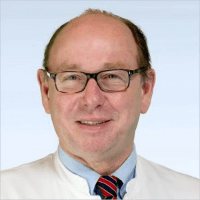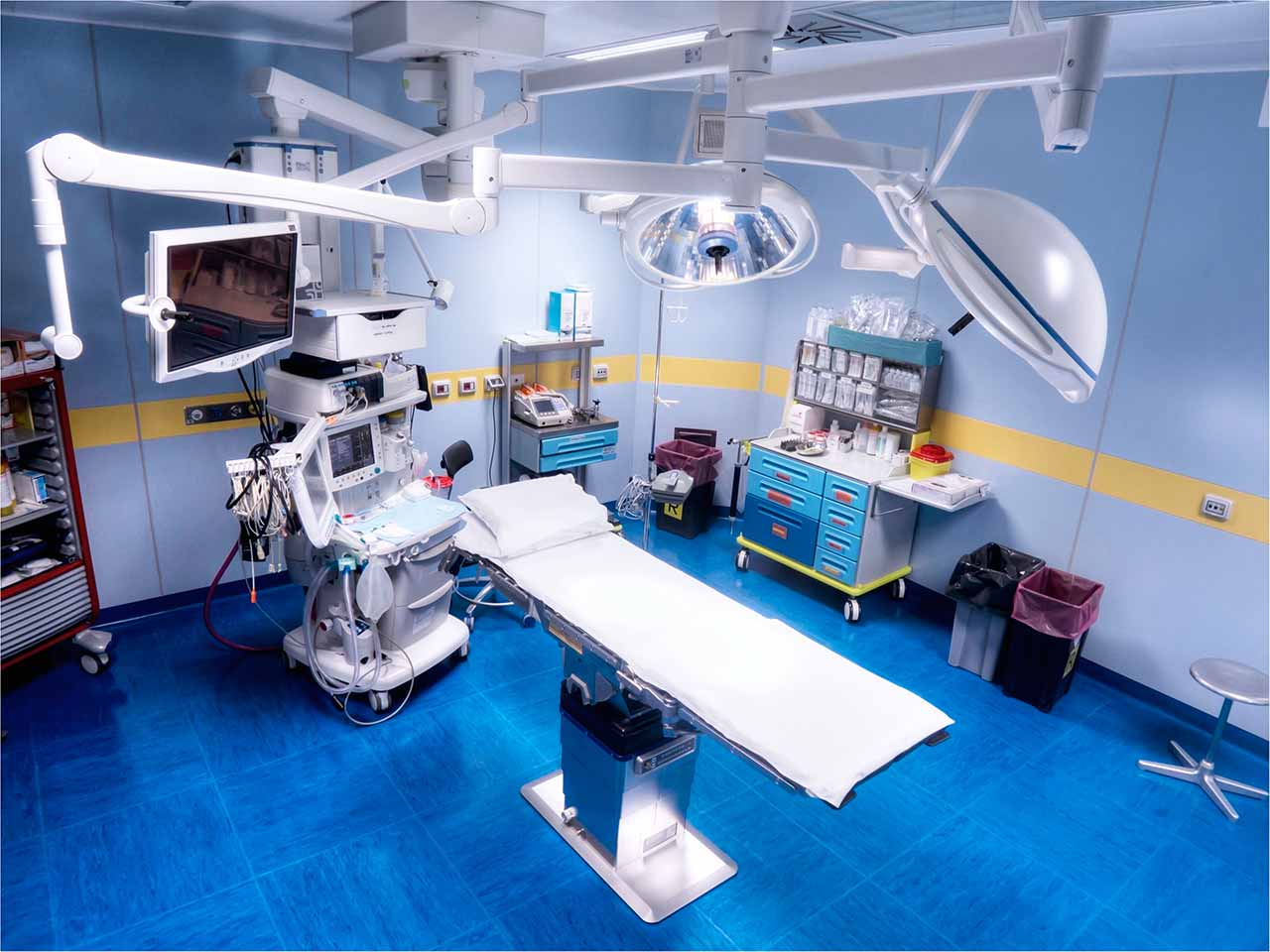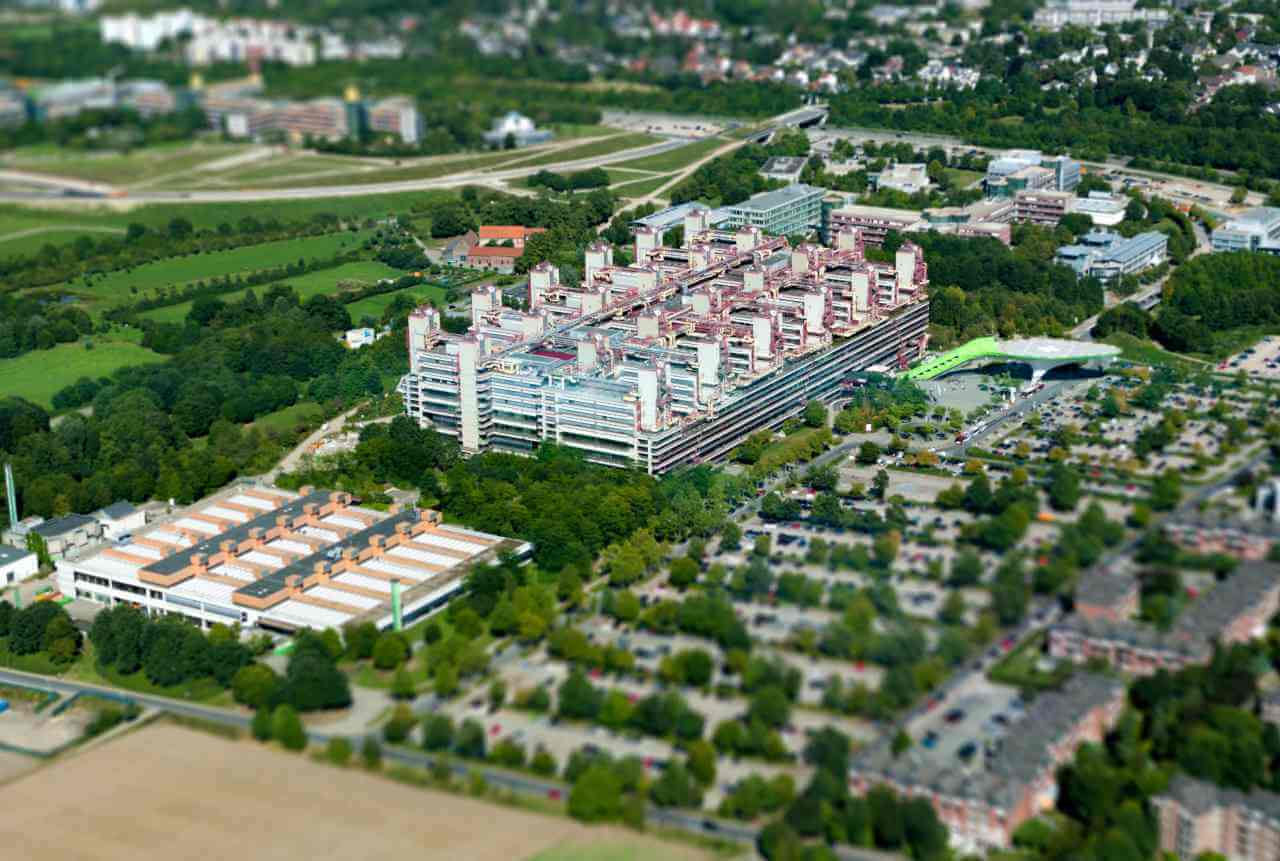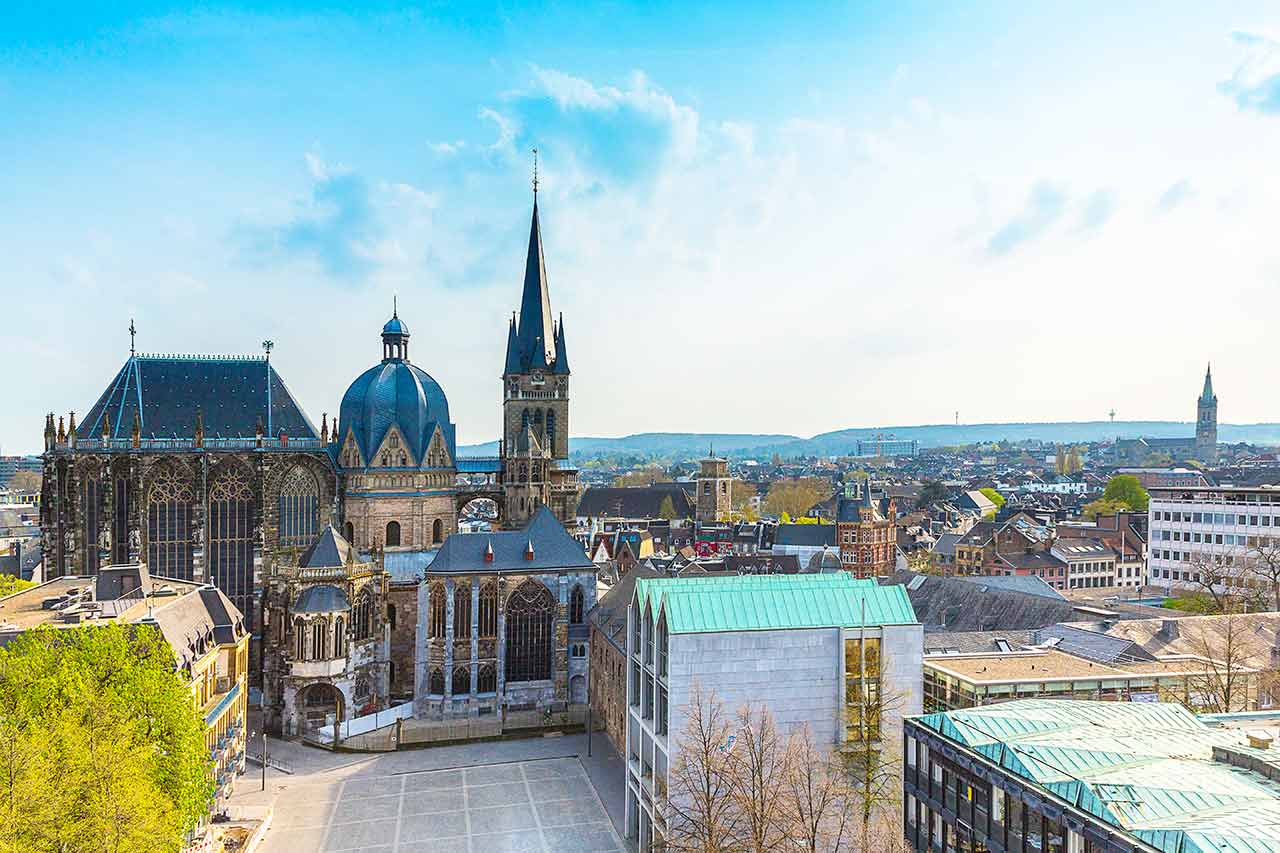
The program includes:
- Initial presentation in the hospital
- Clinical history taking
- Review of available medical records
- Physical examination
- Laboratory tests:
- Complete blood count
- General urine analysis
- Biochemical analysis of blood
- Tumor markers
- Inflammation indicators (CRP, ESR)
- Coagulogram
- Ultrasound scan
- CT scan / MRI
- Preoperative care
- Embolization or chemoembolization, 2 procedures
- Symptomatic treatment
- Cost of essential medicines
- Nursing services
- Elaboration of further recommendations
How program is carried out
During the first visit, the doctor will conduct a clinical examination and go through the results of the available diagnostic tests. After that, you will undergo the necessary additional examination, such as the assessment of liver and kidney function, ultrasound scan, CT scan and MRI. This will allow the doctor to determine which vessels are feeding the tumor and its metastases, as well as determine how well you will tolerate the procedure.
Chemoembolization begins with local anesthesia and catheterization of the femoral artery. The thin catheter is inserted through a few centimeters long incision of the blood vessel. The doctor gradually moves the catheter to the vessel feeding the primary tumor or its metastases. The procedure is carried out under visual control, an angiographic device is used for this. The vascular bed and the position of the catheter in it are displayed on the screen of the angiograph.
When the catheter reaches a suspected artery, a contrast agent is injected through it. Due to the introduction of the contrast agent, the doctor clearly sees the smallest vessels of the tumor and the surrounding healthy tissues on the screen of the angiograph. After that, he injects emboli into the tumor vessels through the same catheter.
Emboli are the spirals or the liquid microspheres. The type of embolus is selected individually, taking into account the diameter of the target vessel. When carrying out chemoembolization, a solution of a chemotherapy drug is additionally injected into the tumor vessel. Due to the subsequent closure of the vessel lumen with an embolus, the chemotherapy drug influences the tumor for a long time. In addition, the drug does not enter the systemic circulation, which allows doctors to use high doses of chemotherapeutic agents without the development of serious side effects. Chemoembolization leads to the destruction of the tumor or slowing down its progression.
After that, the catheter is removed from the artery. The doctor puts a vascular suture on the femoral artery and closes it with a sterile dressing. During chemoembolization, you will be awake. General anesthesia is not used, which significantly reduces the risks of the procedure and allows performing it on an outpatient basis, avoiding long hospital stay.
After the first procedure, you will stay under the supervision of an interventional oncologist and general practitioner. If necessary, you will receive symptomatic treatment. As a rule, a second chemoembolization procedure is performed in 3-5 days after the first one in order to consolidate the therapeutic effect. After that, you will receive recommendations for further follow-up and treatment.
Service
You may also book:
 BookingHealth Price from:
BookingHealth Price from:
About the department
According to the Focus magazine, the Department of Adult and Pediatric Urology at the University Hospital RWTH Aachen ranks among the top German medical facilities specializing in prostate cancer treatment!
The department offers services for the diagnostics and treatment of diseases of the kidneys, urinary tract and pathologies of the reproductive organs in men. The therapeutic options are complemented by the treatment of urological problems in children. The department is headed by Prof. Dr. med. Thomas-Alexander Vögeli.
The department's doctors focus on the patients with oncopathologies (prostate cancer, renal cell cancer, bladder cancer, testicular cancer). Of particular interest is minimally invasive therapy of stones in the kidneys, ureters and bladder. The doctors have in their arsenal conventional and the very latest conservative, drug and surgical therapies, which allow them to achieve the best result in clinical cases of varying severity.
The department is proud of its Section of Robotic Surgery, the foundation of which allowed the medical facility to move to a new level of medical services. At the moment, the department's surgeons have a perfect command of robotic surgery techniques that have several advantages over the classical ones. The department also carries out a unique thermotherapy for bladder cancer treatment (HIVEC) using the Combat BRS system.
The department specializes in the treatment of the following urological diseases:
- Bladder diseases
- Bladder cancer
- Overactive bladder
- Testicular diseases
- Testicular cancer
- Urinary incontinence in men and women
- Kidney diseases
- Kidney cancer
- Kidney and ureter stones
- Prostate diseases
- Prostate cancer
- Urological diseases in children
- Other pathologies
The main clinical focuses of the department include:
- Drug treatment (including cancers)
- Classic surgical interventions
- Minimally invasive treatment for kidney and ureter stones
- Reconstructive surgery in urinary incontinence
- All types of urinary diversion after radical cystectomy
- Robotic surgery using the innovative da Vinci surgical system
- Radical prostatectomy
- Radical cystectomy (bladder resection) in bladder cancer
- Partial and radical nephrectomy (kidney resection) in kidney cancer
- Pyeloplasty
- Reconstructive interventions on the ureters (for example, in stenosis)
- Other therapeutic options
Curriculum vitae
Education and Professional Сareer
- 1975 - 1982 Study of Human Medicine, Julius Maximilian University of Würzburg.
- 1983 - 1984 Assistant Physician, Department of Urology, Bundeswehr Hospital Giessen.
- 1984 - 1985 One-year practice (Surgery), Hofgarten Hospital Aschaffenburg.
- 1986 Research Fellow, Department of Urology, University Hospital Duesseldorf.
- 1986 Doctoral thesis defense with honors, University of Giessen.
- 1990 Board certification in Urology, Medical Association of North Rhine.
- 1991 Acting Head of the Department and Development Specialist of the Section of Pediatric Urology, University Hospital Duesseldorf.
- 1995 Senior Physician, Department of Urology, University Hospital Duesseldorf.
- 1995 Habilitation and Venia legendi in Urology, University of Duesseldorf.
- 1996 C2 Assistant Professor.
- 1998 - 2004 Leading Senior Physician and Deputy Head of the Department of Urology, University Hospital Duesseldorf.
- 2002 Additional qualification in Urological Surgery, Medical Association of the North Rhine, as well as appointment as Examiner in Urology, Medical Association of North Rhine.
- 2003 Extraordinary Professor.
- 2004 Chief Physician, Department of Adult and Pediatric Urology, Aachen Medical Center.
- 2007 Advanced training in Drug Therapy for Cancers.
- 2009 Advanced Training in Andrology, Medical Association of North Rhine.
- 2011 Commission Member on the development of S3 guidelines for prostate cancer treatment.
- 2016 Head of the Department of Adult and Pediatric Urology at the University Hospital RWTH Aachen.
Scientific Awards
- 1989, 1998, 2005, 2010 Paul Mellin Prize, North Rhine-Westphalian Association of Urology.
- 1993 Award at the European Symposium on Urolithiasis.
- 1995 Peter Bischoff Prize, North German Society of Urology.
- 1997 Heinrich Warner Prize in Urological Oncology.
- 2000 Award in Urological Oncology, European Association of Urology.
- 2001 BARD Award of the German Society of Urology.
- 2002 Maximilian Nitze Prize of the German Society of Urology.
- 2003 Scholar Award of the European Association of Urology.
- 2009 Bernd Schönberger Prize of the Working Group on Kidney Transplantation of the German Society of Urology.
Membership and Cooperation in Scientific Organizations, Committees
- Board Member of the Working Group on Urological Oncology of the German Cancer Society.
- Board Member of the Interdisciplinary Working Group on Testicular Tumors of the German Cancer Society.
- Commission Member on the development of prostate cancer treatment guidelines of the German Society of Urology.
- Commission Chairman for the development of prostate cancer treatment guidelines, European Society of Urology
- Board Member of the European Society for Urological Oncology.
- Council Member of the European Germ Cell Cancer Consensus Group.
- Focus working group on Testicular Tumors of the French Cancer Society.
- Advisory Member of the Society of Urological Oncology, Belarus.
- Advisory Member of the Society of Urological Oncology, Russia.
- Advisory Member of the Society of Urological Oncology, Turkey.
Photo of the doctor: (c) Uniklinik RWTH Aachen
About hospital
According to the prestigious Focus magazine, the University Hospital RWTH Aachen ranks among the top German hospitals!
As a maximum care university medical facility, the hospital guarantees patients first-class medical services combined with a respectful and human attitude. The hospital integrates all the modern options for the accurate diagnostics, effective therapy and productive research activities within one specialized center.
The hospital has more than 60 departments, institutes and interdisciplinary centers. A competent team of professionals, consisting of more than 7,000 employees (more than 940 doctors, including about 95 professors), takes care of the patients' health. In addition, multidisciplinary teams of nurses, physiotherapists, as well as medical and technical staff are available here. The patients and respectful attitude to their social, cultural and religious affiliations are at the center of all employees' efforts.
The cornerstone of the successful clinical practice is the innovative technical base. The hospital offers the most advanced diagnostic and therapeutic equipment. Thus, the hospital has all the resources in order to provide top-class medical services.
Photo: (с) depositphotos
Accommodation in hospital
Patients rooms
The patients of the University Hospital RWTH Aachen live in comfortable single and double rooms. All patient rooms are designed with large windows, so one can enjoy a beautiful landscape view. Each patient room has an ensuite bathroom. The standard room furnishing includes an automatically adjustable bed, a bedside table, a spacious wardrobe, a TV, a radio and a telephone. Also, there is Wi-Fi access.
Meals and Menus
The patient and his accompanying person have a daily choice of three menus. If for any reason you do not eat all the foods, you will be offered an individual menu. Please inform the medical staff about your dietary preferences prior to the treatment.
Further details
Standard rooms include:
Religion
Religious services are available upon request.
Accompanying person
During the inpatient program, an accompanying person may stay with you in a patient room or at the hotel of your choice.
Hotel
During the outpatient program, you can live at a hotel of your choice. Managers will help you to choose the most suitable options.
The hospital offers a full range of laboratory tests (general, hormonal, tests for infections, antibodies, tumor markers, etc.), genetic tests, various modifications of ultrasound scans, CT scans, MRI and PET / CT, angiography, myelography, biopsy and other examinations. Treatment with medications, endoscopic and robotic operations, stereotaxic interventions is carried out here, modern types of radiation therapy are also used. The hospital offers patients all the necessary therapeutic techniques.
- Embolization of tumors and vascular malformations
- Aortic surgery, including in children
- Radiosurgical interventions in the head and body region
- Cochlear implantation
- Treatment of all types of sports injuries
These are pathologies of the brain and spinal cord, benign and malignant tumors of various localizations, congenital and acquired heart defects, joint pathologies, stroke, neurodegenerative diseases, eye injuries, inflammatory skin diseases, allergies and other pathologies.
- Oncology (EU Regional Center for Comprehensive Cancer Care Aachen)
- Pediatric cardiac surgery
- General and abdominal surgery
- Plastic and burn surgery
- Pediatric and adolescent medicine
Over 940 highly qualified doctors work at the hospital.





